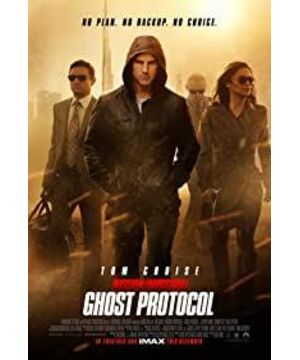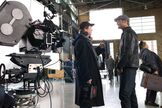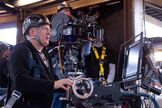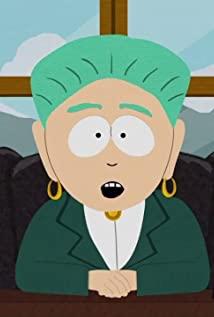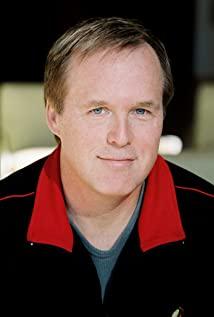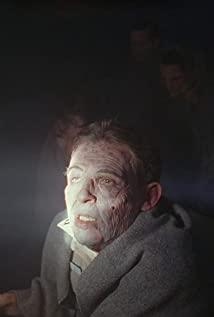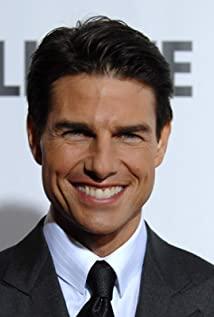Overall, the script evaluation of Mission Impossible 4 should be "good". At first glance, there are no obvious flaws (of course there are still some small bugs), and it will not make people feel bored sitting in the cinema. And the high-tech spy wars shown in the film are not affordable for every screenwriter. Even if you just want to see how far the special effects of film and television are now, you will never lose money by buying a ticket. And for some audiences who are familiar with the style of Hollywood movies, sitting in the cinema and guessing the plot with friends is also a very interesting thing. The audience wants to spend money to watch an entertaining film, and the producer wants to dig money out of the audience's pocket. The two parties hit it off, so why not do it.
Let’s follow the plot, and select some of the most representative scenes to analyze and analyze the script creation of this film~
①The first scene
[Overlooking, a European city, an ancient bell tower dome. The rooftop door was suddenly pushed open, and a middle-aged running man rushed out, with a few people behind him. They shot him. ]
These are the first few shots of the movie.
The city directly narrates the location of the story, which can give the audience the most intuitive and accurate impression in an instant, which is a simple and effective way of expression. And then, the Tiantai Gate that suddenly opened again heralded an unusually tense situation. There are many works now, whether it is novels, movies or cartoons, there is an embarrassing fact, that is, the audience does not enter the drama from beginning to end. The plot is not coherent enough, the lines are too fake (often, a rural aunt's exports are all high-level written language), the use of the camera makes people feel uncomfortable (here again named and criticized the Hongmen banquet), will distract the audience and make them aware "I'm watching a fictional story." Sudden tension is the best solution. The audience suddenly forgot that they were watching a movie. They only thought: What is the fate of the man who ran away? Why was he hunted down? Who is he?
The three most direct and clear foreshadowings were given to readers in a short period of time, so the story continued to unfold around these three questions.
[The man fell downstairs, but he did not die, but fell on the air cushion, and when he fell, he responded in time. His enemies are dead, and he is free from danger. At
a turning point, the passive escaper used his incredible power and successfully dismantled the enemy's threat. In this paragraph, the information we can get is "the man is well-trained", "he is equipped with magical equipment-the air cushion that suddenly appeared", "he got rid of the danger." The
audience's hanging heart was relieved. , But our intuition tells us that characters who show their power within 2 minutes of the plot, if they are not the protagonist, there are already more death flags on them like singing Peking opera. It is already a classic practice to "capsize the boat in a small river ditch" when the audience just relaxes their vigilance. Sure enough, after the man turned the corner, a blonde woman in a light-colored coat walked towards him. The skilled killer got rid of the man, and from that easy manner and action, the audience immediately got the comment that "this man's level is much higher than that of the man who died". At the same time, here also sends us a clear and classic signal that this blonde woman must be the key figure (one of) in the plot.
The above is the first scene of the whole play. After the plot ended, the audience still had three questions: Why were men hunted? Who is the man? Who is the blonde woman? I have to mention the first scene of the first part of "The Godfather" again. "The Godfather" has been continuously used as a classic example of script creation because its structure is so exquisite that it presents a completely unfamiliar and mysterious world to readers from the very beginning. "The Godfather" is shady at first, the reader first heard the voice of the speaker, a middle-aged man. The middle-aged man was narrating his daughter's experience, and the camera gradually zoomed out. At this time, the audience saw his appearance and his location. While the man was talking, the camera switched to the man who was talking to him, another man. But in the backlight, except for his expressionless face, his appearance is not clear. In this paragraph, the audience is also asked a few questions: Who is the man who speaks? what happened? Who is the man listening to him?
Ask the audience questions to keep them aware of what they wanted to know before, while constantly giving them new things that they didn’t know. The screenwriter uses this method to lure the audience into the plot and keep watching.
This may seem simple, but it is not very easy to do. The problem that some screenwriters are easy to make is that they throw too many questions at once. Although such stories are often more mysterious, the "difficulty to learn" will scare some of the audience at the beginning; another part of the screenwriters never Asking questions, so the audience didn't know what they would see next at first. The plot was treated more by boring waiting than urgent curiosity. There are simply too many examples of the latter in recent years. Think about the few classic Chinese classic story movies you see every year. If you are too familiar with something, it will often lose its appeal, and the screenwriter has not given the audience enough new suspense. Such a film feels boring and helpless.
②The description that can be deleted shows that
Hollywood movies have a characteristic, that is, for fear that readers will not understand it. Scientific research has proved that people can still understand the meaning of sentences by randomly disrupting the order of letters or Chinese characters. In fact, movies are the same. As long as you mention or even imply some things, no one in the audience is stupid. In my opinion, there are two paragraphs in the movie that can actually be deleted. I personally think that the explanation is a bit redundant.
The first one is that after the protagonist is rescued, he listens to his companion in the car about the failure of the opening action. I think that paragraph is a bit too detailed, in fact, you have to explain the relationship between the characters or the plot, just use some narratives and flashbacks, you don't need to repeat it again. The second is that the protagonist hangs a lamp on the corpse to attract bullets. Later, the staff officer asked "why did you do this?" I don't think this paragraph is necessary. First of all, the staff officer himself is a spy, and there is no need to ask such questions. Second, if you let the protagonist say "I guess" such unreliable words, you are simply slapped in the face by yourself, don't worry. ③Classic flags There are too many
flags in
this movie. Of course, it's not that it's bad to use this way, but it's quite interesting to take out those places. To sum up:
1. The man who was handsome in the first three minutes, he really hung up;
2. The protagonist asked "how to use this thing" high-tech products, half of the use is bound to be broken;
3. "You have always been my trust Subordinates", the poker face who speaks the truth is to be hung;
4. A 3-second shot of the direct supervisor’s staff was specially given, and this person must have a problem;
5. The close-up cultural relics and scenic spots are It will explode;
6. Whenever there is a tall building, it will either collapse or fall;
7. If you want to avoid certain situations, certain situations will definitely happen, such as the launch of a nuclear bomb.
There are definitely many others, because I kept counting when I was sitting in the cinema, but unfortunately, I almost forgot about it when I came back to work for two days.
④ Structure
Regarding how to write the script of such a film, no one has ever asked the screenwriter, so the specific process is unknown, but when you have watched such a film, you can roughly sum up some useful experiences.
(Unfinished writing, archived halfway through)
View more about Mission: Impossible - Ghost Protocol reviews


